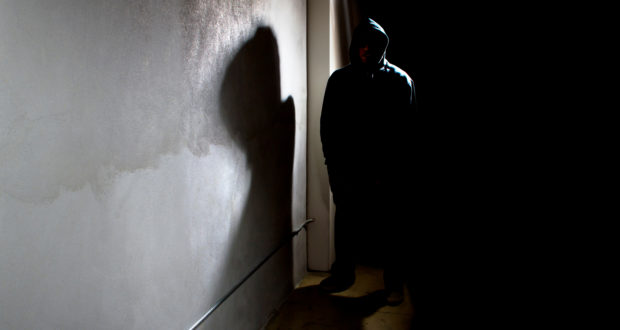We've all been afraid of, or been a victim of, crime at some point. You may have grown up in a dodgy area (like myself) where walking down the street at night set your nerves on edge. Or you might watch a lot of crime shows and see bad guys in the shadows as a result.
But for the elderly, a fear of crime could be down to social isolation.
Researchers have examined the age differences in fear of crime in urban neighbourhoods, and found that even in “advantaged” areas of major cities, older people still have a high fear of crime, despite minimal exposure to actual crime.
In quality-of-life and health research, fear of crime is seen as an impediment to wellbeing and mental health and the researchers suggest their findings could show the way toward significantly improving the lives of older people.
The study involved over 12,000 people aged 25 to 90 from 435 neighbourhoods across four cities – Melbourne, Brisbane, Essen and Cologne.
Unemployment rates were used as a lead indicator of neighbourhood social disadvantage and problematic urban environment.
In contrast, in disadvantaged neighbourhoods, younger people were scared too, but not so much in advantaged neighbourhoods.
"People's sense of attachment to community mattered a lot for explaining that relationship," says Associate Professor Rebecca Wickes, co-author of the study and criminologist at Monash University.
"I think that probably one of the big drivers for fear of crime, specifically for older people, may be social isolation and not feeling as though they are part of that community.
"I think when you combine that with a consumption of media that tends to sensationalise crime, and we certainly know that media sensationalise the rarest events, that perhaps if you're isolated and you're consuming media that is suggesting that crime's a real problem, you might feel quite fearful."
As a criminologist, Wickes is excited by the findings. She says the study shows that facing crime and improving community life is not all about extra CCTV, high fences and locks on doors.
"These things don't actually improve community life, and when community life is improved, the likelihood of criminal events occurring decreases," she says.
"So I'm pleased to see that the results supported that living in a good community where you like the people who are around you, where you want to stay living there, that that has such a positive and protective effect against the acquisition of harmful views or attitudes."
She points to work currently being undertaken by the Victorian Department of Justice and Community Safety, which is including community strengthening and community building in its crime prevention strategies, as an example of the practical policy implications her research could influence.
"[The] big message here is about ensuring that older residents feel part of their community, that they are included in community activities, that they're looked after by neighbours, that they're brought into street parties, that they feel as though they belong and that they're not socially isolated, particularly during this period of COVID-19 where we're spending so much time on our own," she says.
"I feel that that has a real significant impact, especially for older people who may be living alone and would really welcome opportunities to be part of their community."
Do you have an idea for a story?Email [email protected]
 Aged Care Insite Australia's number one aged care news source
Aged Care Insite Australia's number one aged care news source

